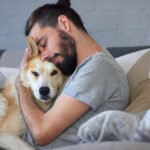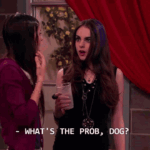Why Is My Dog Acting Scared Of Me
Understanding Why Your Dog Might Be Acting Scared of You
Dogs are known for their loyalty, affection, and playful spirit. They can bring joy, comfort, and companionship to our lives. However, sometimes dogs can also exhibit behaviors that are confusing, frustrating, or even frightening, especially when they seem scared of us. If you are wondering why your dog is acting scared of you and what you can do about it, this article will explore some possible reasons and solutions.
Possible Reasons Why Your Dog Is Acting Scared of You
Before we delve into the possible reasons why your dog might be acting scared of you, let’s clarify what we mean by “scared” in this context. A scared dog may show signs of fear, anxiety, stress, or avoidance behavior. These signs can include trembling, panting, drooling, hiding, cowering, growling, snapping, or biting. They may occur in specific situations or contexts or be more generalized.
Now that we have a better idea of what we are looking for when we say “scared,” let’s consider some possible reasons why your dog might be exhibiting these behaviors towards you:
1. Traumatic experiences: Dogs who have experienced trauma in their past may associate certain stimuli or actions with danger or pain. For example, if your dog was hit by a car and you pick them up abruptly, they may feel scared because they think you will hurt them again.
2. Lack of socialization: Dogs who have not been exposed to a variety of people, animals, and environments during their critical developmental period (between 3 and 14 weeks) may become fearful or aggressive towards unfamiliar stimuli later in life.
3. Lack of training: Dogs who have not received proper training and guidance may resort to defensive or reactive behaviors when they feel threatened or overwhelmed. For example, if you pull your dog’s leash too hard or use physical punishment, they may learn to associate you with pain and fear.
4. Health issues: Dogs who are in pain, discomfort, or have medical conditions that affect their senses or cognitive function may become more reactive or unpredictable. For example, if your dog has an ear infection, they may snap at you when you touch their head because it hurts.
5. Changes in the environment: Dogs who are sensitive to changes in their routine, living conditions, or social dynamics may feel anxious or stressed. For example, if you move to a new house or bring a new baby home, your dog may feel displaced or threatened.
These are just some possible reasons why your dog might be acting scared of you. It’s important to note that each dog is unique and complex, and there may be multiple factors at play. Therefore, it’s crucial to observe your dog’s behavior carefully and seek professional help if needed.
Possible Solutions To Help Your Dog Feel Less Scared of You
Now that we have identified some possible reasons why your dog might be acting scared of you, let’s explore some possible solutions that can help alleviate their fear:
1. Build trust and confidence: One of the most effective ways to help your dog overcome fear is to build a positive relationship based on trust and confidence. This involves rewarding good behaviors with treats, praise, and playtime, while avoiding punishment or coercion. You can also use counterconditioning and desensitization techniques to help your dog associate previously scary stimuli with pleasant experiences.
2. Provide a safe and comfortable environment: Another way to reduce your dog’s anxiety is to provide them with a secure and comfortable place where they can retreat when they feel overwhelmed or stressed. This can be a crate, a bed, a den-like area, or any other space that meets their needs for privacy and relaxation.
3. Seek professional help: If your dog’s fear is severe or persistent despite your best efforts, it’s advisable to seek professional help from a qualified dog trainer, behaviorist, or veterinarian. They can assess your dog’s behavior and health, provide personalized advice and treatment plans, and monitor progress over time.
4. Be patient and consistent: Finally, it’s important to be patient and consistent in your interactions with your dog. Changing behaviors takes time and effort, and setbacks are normal. However, if you stay committed to helping your dog feel less scared of you, you can create a stronger bond that benefits both of you.
Conclusion
In conclusion, dogs may act scared of their owners for various reasons, such as traumatic experiences, lack of socialization or training, health issues, or changes in the environment. To help your dog feel less scared of you, you can build trust and confidence through positive reinforcement, provide a safe and comfortable environment, seek professional help if needed, and be patient and consistent. By understanding why your dog is acting scared of you and taking proactive steps to address their fear, you can strengthen your relationship with your furry friend and enjoy more happy moments together.



